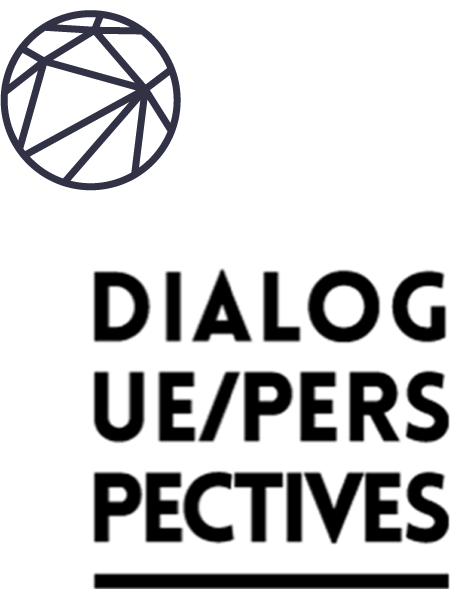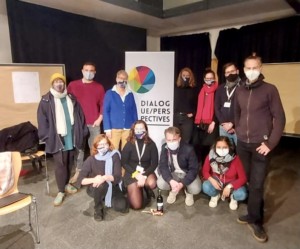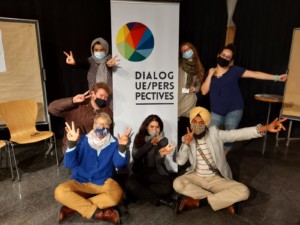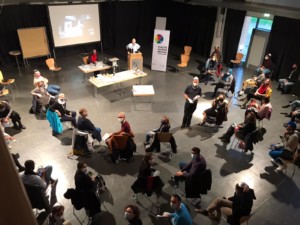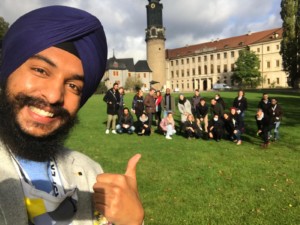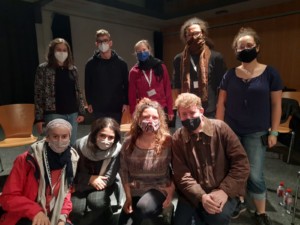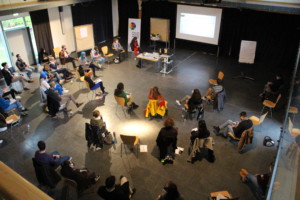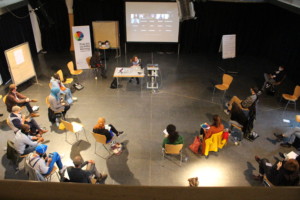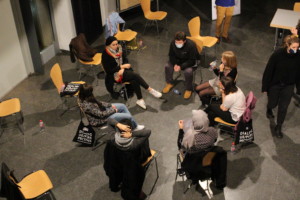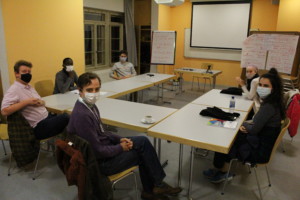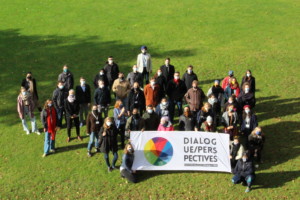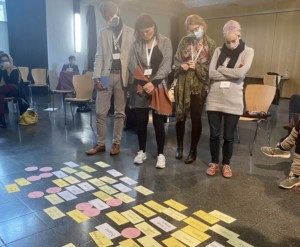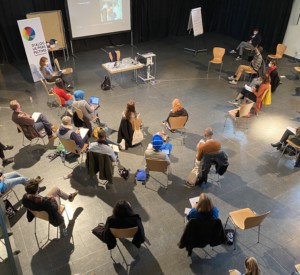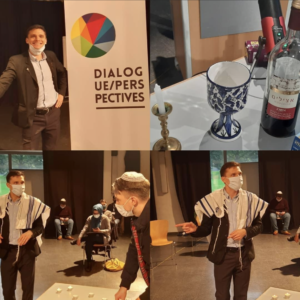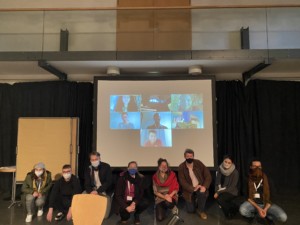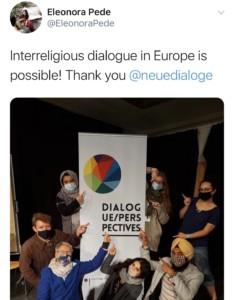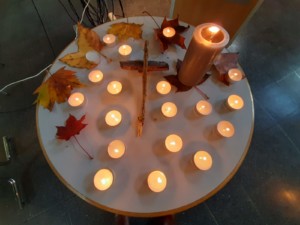Retrospect: Autumn Seminar 2020
Challenging Europe-Challenges of Europe: Analysing European Social, Religious, Cultural and Political Landscapes (Post)Covid-19
Challenging Europe – Challenges of Europe! The first seminar of this year’s DialoguePerspectives programme took place from 7 to 11 October – an incredible start to our first year as a European programme.
Over 70 inspiring and highly committed students and doctoral candidates from across Europe came together, both in Weimar, Germany and online, to grapple with questions of the religious, political, and societal plurality and pluralism of European society.
If it wasn’t for a global pandemic, we would have met with the whole group of over 70 participants of various religious and nonreligious affiliations from 18 European countries in person in Weimar. To allow the seminar to take place despite the Corona pandemic, we developed a hybrid format that provided participants the opportunity to take part in all parts of the seminar online.
Over the course of five intensive days of work, discussions, and shared experiences of religious practice, the participants coalesced as a group, began building relationships and networks, and setting goals and an agenda for their joint work and action this year.
During the seminar, the participants came together in interdisciplinary working groups in which they grappled with the respective historical, political, and societal conditions as well as the religious, political, and social diversity of European societies:
The working group Future Europe – a Space of Possibilities! concentrated on the possibilities of the Europe of tomorrow rather than the Europe of today, by asking: Which constraints on change exist? How do we get out of the defensive position? Is radical change even possible? What is realistic, and what is utopian? And why not strive for utopia?
The working group It’s the End of Religion as We Know it? took a closer look at the challenges facing institutionalized and individualized religion in Europe by asking: Is the noticeable rise of individualized religious beliefs a necessary consequence of modern individualized societies? How do processes of digital transformation and knowledge distribution impact and change modern religious cultures? And how might these developments shape our religious and cultural values?
The working group Antisemitism, Racism, and Post-Colonialism – Historicizing a Complex Interrelationship delved into the history of the cooperation and conflict between Jewish activists and anti-racist as well as anticolonial movements and by doing so, shed light on the multifaceted nature of this historical relationship in order to potentially better understand our current debates.
The working group It’s complicated – Religion, Worldviews and the State dealt with the relationship between religious communities, politics, and the state, based on the status quo of the European Union, combining theoretical approaches on this relationship with practical discussions of its status quo in the European Union. The group also turned to the challenges we are facing in striving for a pluralistic and inclusive European society.
The working group Conspiracy Myths between Pop Culture and Anti-Semitism discussed narrative patterns and structural anti-Semitism in conspiracy myths, comparing some examples (e.g. Qanon, The Protocols of the Elders of Zion).
Three lectures – Bring Dynamite, and a Crane, blow it up and start over again by
Jo Frank (Leo Baeck Foundation//DialoguePerspectives), Conspiracy Myths in the Time of Corona by Prof. Peter Knight (University of Manchester), and Religious Pluralism and Religion in the Public Space in Europe by Effie Fokas, PhD (Hellenic Foundation for European and Foreign Policy) dealt with various aspects and challenges of religious, political, and societal pluralism in European societies and with the general assumptions and challenges that serve as the basis for our work.
Shared religious practice during the seminar was a further focus of the proceedings. The Friday prayers, the Kabbalat Shabbat celebration, and the ecumenical Christian prayer service were the high points of the religious programme prepared and carried out by both the participants and the religious advisors. At the start of every day, the group began with shared morning impulses from the participants themselves: with a Hindu hymn, an interactive Bible study, Simran, a Sikh meditation, an input on Syrian Orthodox church tradition and history, and a musical mediation on the 99 Names of Allah.
In the reflection format, the participants grappled with fluid constructions of identity, with self-perception and external ascription, and with their own positions as members of various religious, cultural, and social groups and the privileges and/or experiences of discrimination resulting from them.
While for some participants it was their first opportunity to get to know people of different religions and worldviews, to learn from the encounters and exchange with one another, and to gain such new perspectives, other participants are already active in their communities, universities, and organisations across Europe.
Therefore the format ‘Let’s network’ was designed to create a space for sharing projects, initiatives, urgent topics and ideas and for finding fellow participants to expand networks and generate synergies.
We came to the end of the first seminar of the new programme year full of impressions and memories of the intensity of the encounter, the collaboration, and the shared religious practice. We have already gathered a diverse range of ideas and plans for the year.
A huge thank you to everyone for making the seminar a success. We also thank everyone in Weimar for the responsible handling of the Covid-19 measures, allowing us to connect in person, even at a 1.5m distance.
We are excited to continue the work and to see everyone in Luxembourg in March 2021!
